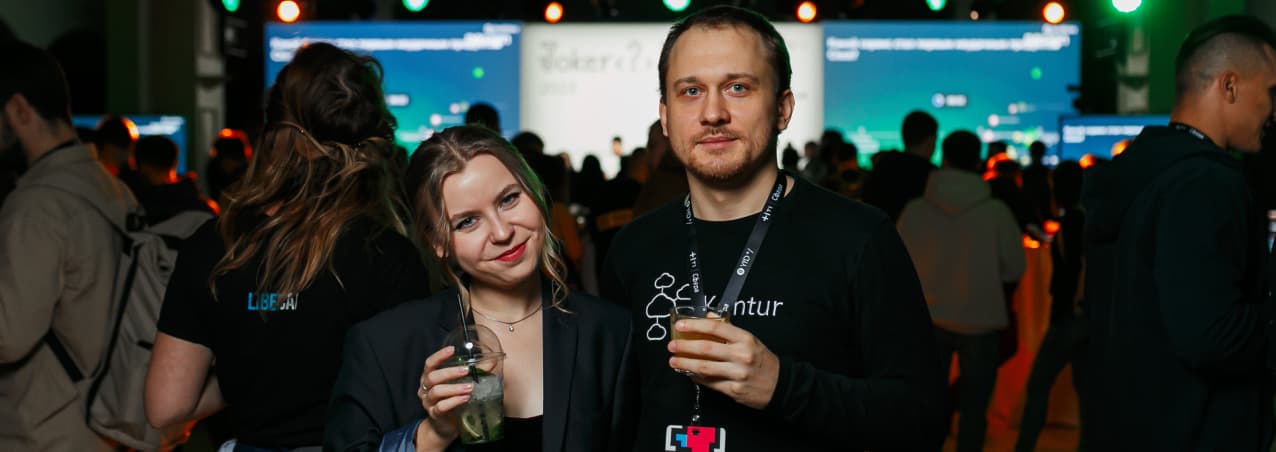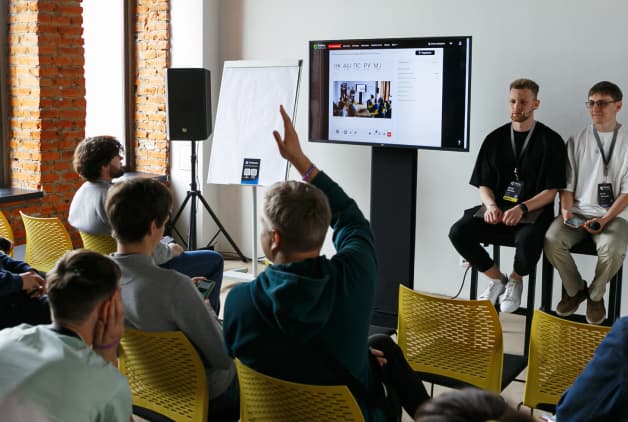Offline C++ Russia. Moscow
June 2–3 00:00–00:00 (UTC+3)
Offline: "Lomonosov" Cluster, Ramensky Boulevard, 1
It’s offline, where you
- Chat with colleagues. Catch speakers to talk to or consult with experts.
Join various activities
Participate in sessions, contests and quizzes. Complete quests or compete in games.Hanging at the booths
Meet new projects and companies. Network on career topics. Get merch.
Offline only, no recording
June 2
- No record
Talk type: Partner’s game
Yandex C++ Afterparty
During the day, drop by the 1st floor, where there will be an afterparty by Yandex. There you will be able to vote for controversial topics for Bulvar Holivar, which we will discuss after the main programme. In the evening, come to the party — to dispute at Bulvar Holivar or just to have a good time.
- No record
Talk type: Talk
Lightning Talks
Lightning talks are a great format to discuss a topic in a dynamic way and find like-minded people. 20-minute talks on professional topics and lively discussions will be waiting for you.

Roman Ustinov
Company: Independent expert

Roman Badmaev
Company: Optimacros

Vania Khodor
Company: Yandex

At the venue, in general

Afterparty
A party for participants, speakers, experts and hosts. The menu includes drinks and appetizers, informal networking and a great time spent.
Lunch and coffee breaks
Buffet for all participants. Drinks and snacks of your choice in between.
Networking
Meeting colleagues from different companies. Sharing ideas and contacts.
Mix of various formats
Discussions and informal talks with speakers and participants. Round tables, BoF sessions and Lightning talks.
If you can’t participate offline or want to leave early, there is always an online broadcast of all the talks from the main program. Then there are video recordings available.
FAQ
Where will the offline part of the conference be held?
Offline part will be held on June 2–3 at the following address: Moscow, Ramensky Boulevard, 1, "Lomonosov" Cluster.When will the program and time for the offline part of the conference be known?
We begin publishing the program in batches on the conference website one month in advance.What activities will be included on the offline part of the conference?
There will be on the offline part:
- talks;
- roundtables;
- BoF-sessions: meetings of interest without a scheduled schedule;
- discussions with offline and online speakers who will come to the site;
- Afterparty for participants at the end of the first offline day.
Will there be an online broadcast of the offline part of the conference?
We will broadcast live most of the activities of the offline part: talks, roundtables, etc.
Discussions and BoF-sessions will not be broadcast or recorded.
Offline was so long ago that I no longer remember what the procedure was for offline conferences.
Don’t worry, before the conference we will send you a participant’s memo. It will contain all the necessary information.Can I buy a ticket only for the offline part of the conference?
To attend the offline part, you must purchase an ONLINE + OFFLINE ticket. It entitles you to attend the offline part of the conference and lifetime access to the recordings of the online part.How do I get into offline part if I have a ONLINE ticket?
If you already have a ticket for the online part of the conference, you can upgrade it to ONLINE + OFFLINE. To do so, email our support team at support@cppconf.ruHow do I get to the offline part if the company only paid for my ONLINE ticket?
If the company that paid for your ticket is not willing to upgrade to ONLINE + OFFLINE, you can do it yourself at a discount. The discount is given for taking the survey after the online part of the conference ends.Is there a limit to the number of tickets for the offline part?
The number of tickets is limited to the capacity of the conference venue.
So it is better to buy tickets in advance while they are available.
Are there any restrictions on going to an offline conference?
There will be no COVID restrictions on site visits. You don’t need QR codes or PCR tests to enter the venue. For your safety a qualified medical worker is constantly on duty at the site.
However, if you’re feeling unwell, it’s best to refrain from going offline. You will be able to participate in the offline part remotely or watch the performances in the recording.

